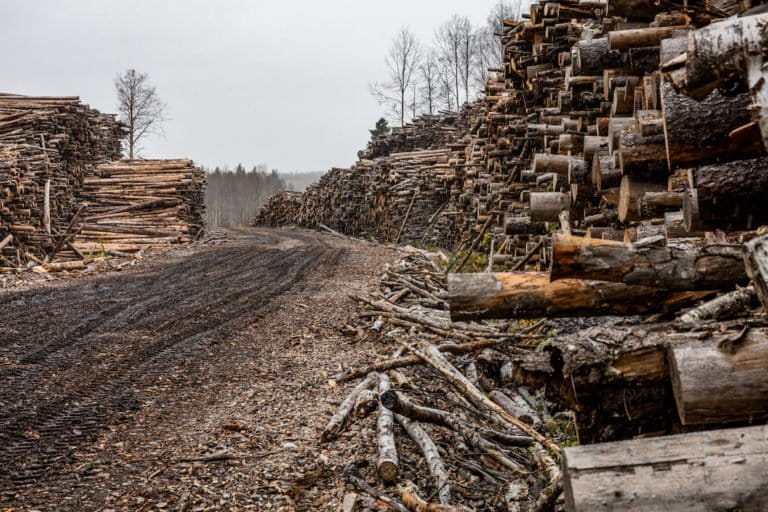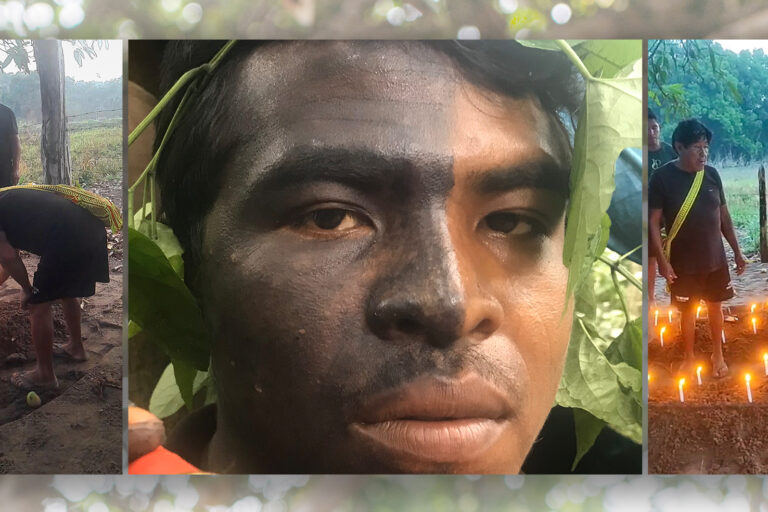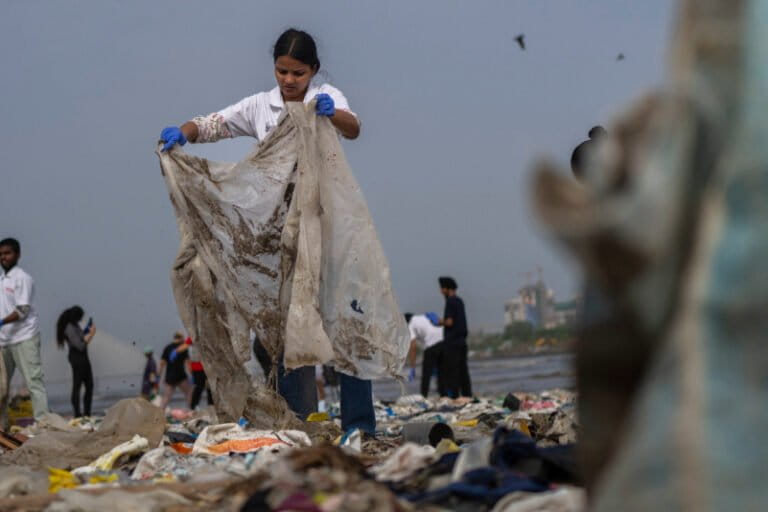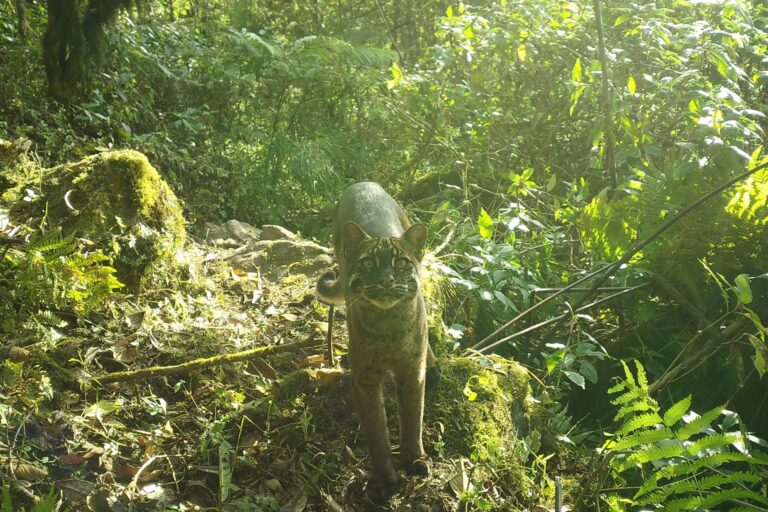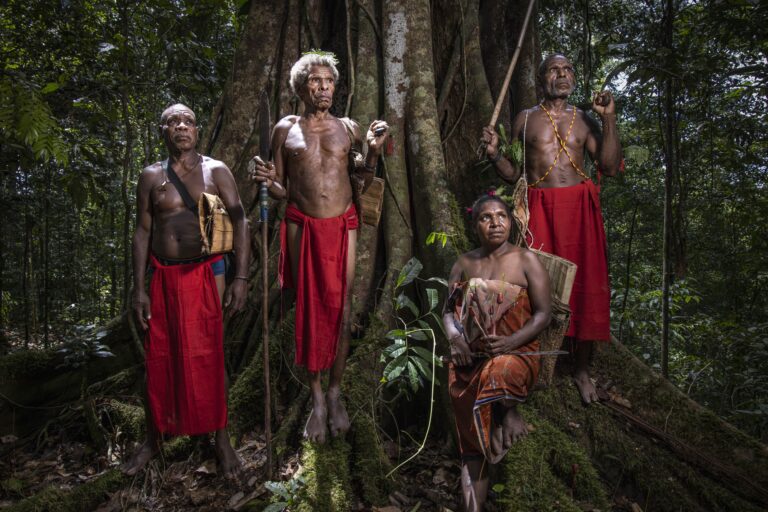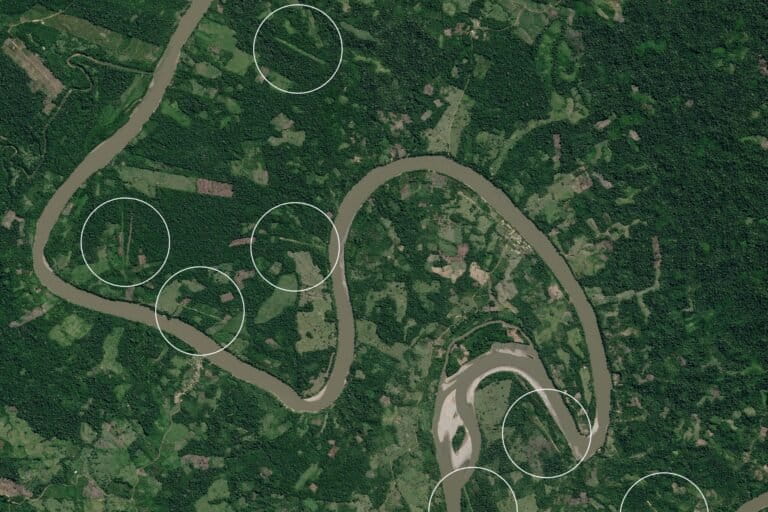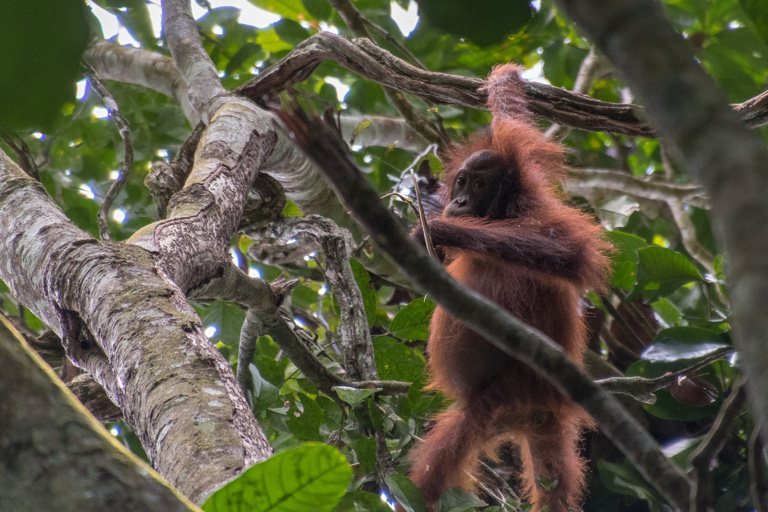- Singapore-headquartered Olam International is the subject of a new report by NGOs Mighty and Brainforest that alleges forest destruction by the company in Gabon.
- Olam counters that it is only expanding into Gabon’s least valuable forested lands and that the clearance is necessary for Gabon to pull itself out of poverty.
- The debate raises questions about what it means for a country to develop sustainably, and whether deforestation should be seen as a means to that end.
- Olam has also released a list of its palm oil suppliers in response to the NGOs’ allegations that the firm is a “black box” that buys and sells palm oil linked to deforestation and human rights abuses.
Agribusiness giant Olam International has for the first time published a list of the firms it buys palm oil from, part of the company’s response to allegations that it is driving forest destruction in Southeast Asia and, more dangerously, perhaps, in West Africa.
NGOs had assailed Olam for failing to disclose its suppliers, unlike its main competitors in the palm oil industry, in which the Singapore-headquartered commodities trader and plantations operator has recently become a major player. The disclosure was Olam’s most concrete response to a report by NGOs Mighty and Brainforest, which are respectively based in the US and in Gabon.
Mighty said it was “happy that Olam has responded with these constructive moves. Olam has cracked open its black box to the light of day.”
The campaign group was less enthused, though, by the company’s response to its claim that Olam is playing with the definition of “forest” in order to get away with deforestation in Gabon.
Olam did not dispute the NGOs’ charge that it was clearing nearly 26,000 hectares of forest in the West African country. While Olam, like its competitors, has committed to refrain from clearing “high carbon stock,” or HCS, forest, it argues that too much of Gabon’s territory remains forested — 90 percent — for the generally accepted means of defining HCS, which was developed in the Southeast Asian context, to be applied to Gabon.
Almost all of the world’s palm oil comes from Indonesia and Malaysia, but as those countries run out of available land, companies like Olam are turning to Africa to expand. In defending itself against the NGOs’ allegations, Olam points to the “right to develop” of nations like Gabon, where a third of people live below the poverty line and a fifth are unemployed.
“We agree with Gabon’s sovereign right to convert a tiny percentage of its least valuable forested land for agriculture, so long as it is responsibly and transparently done,” Olam said in a statement issued in response to the NGOs’ report.
“Getting high-yielding plantations up and running requires an appropriate initial land base,” the company added. “Given much of Gabon’s non-forested land is infertile savannah or swamps, there simply isn’t enough available non-forested land to start up such a development. It is therefore necessary to include some highly degraded forest lands.”

Mighty disputes as “misleading” Olam’s claim that is only clearing “highly logged and degraded secondary forests,” arguing that the firm actually appears to be converting between about 6,000 and 9,000 hectares of forest that Olam itself classifies as “relatively undisturbed or lightly logged.” Mongabay could not independently confirm either side’s claim on this point.
More broadly, the NGO impugns the contention that the model of deforestation-for-palm-oil can be sustainably exported from Southeast Asia, where it has driven Indonesia’s sky-high rate of forest loss and fueled the annual peat fires that each year blanket the region in a toxic haze.
Indonesia, too, was once heavily forested, “until companies logged, bulldozed, and burned 30,000 square kilometers of it over the past four decades,” Mighty spokesperson Marisa Bellantonio said. “We have a chance to stop history from repeating itself in Gabon and throughout Africa. Olam, as the company establishing the largest palm oil operation in Africa, has the opportunity to set a different example.”
There is plenty of degraded land in Africa — 48 million hectares — “where agriculture can be expanded without threatening forests and wildlife,” she added. “Olam’s monoculture plantation development will leave local communities without forests for subsistence and also threatens to make them dependent on large, foreign multinational corporations.”
Mighty campaign director Deborah Lapidus said, “a much better path is to pursue ecotourism and other businesses that benefit from forest conservation, and there are many international donors who stand ready to offer financial incentives to support such efforts.”
Banner image: Oil palm fruit in Indonesia, the world’s top palm oil producer. Photo by Rhett A. Butler







